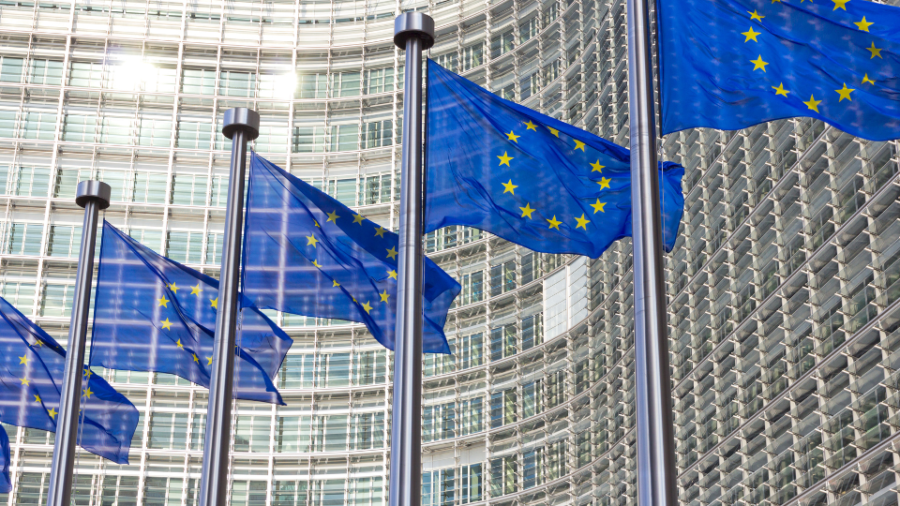
The European Commission has approved, under EU State aid rules, a €5 billion German measure to support European Semiconductor Manufacturing Company (‘ESMC') in the construction and operation of a microchip manufacturing plant in Dresden. ESMC is a joint venture between Taiwan Semiconductor Manufacturing Company (‘TSMC'), Bosch, Infineon, and NXP. The measure will strengthen Europe's security of supply, resilience and digital sovereignty in semiconductor technologies, in line with the objectives set out in the European Chips Act Communication. The measure will also contribute to achieving the digital and green transitions.
The German measure
Germany notified the Commission of its plan to support ESMC's project to build and operate a new semiconductor production facility in Dresden, Germany. The project aims at serving the demand for automotive and industrial applications.
The new large-scale manufacturing facility supported under the measure will deliver high-performance chips, based on 300mm silicon wafers with node sizes covering 28/22nm and 16/12nm, using field-effect transistor (‘FinFET') technology and allowing the integration of several additional features in one chip. The produced chips will offer better performance while at the same time reducing total power consumption. The plant, which is planned to be operating at full capacity by 2029, is expected to produce 480,000 silicon wafers per year.
The facility will operate as an open foundry, meaning that any customer – including but not limited to the three other shareholders besides TSMC – can place orders for the production of specific chips. This operating model is important for the wider EU ecosystem, especially in view of ESMC's commitments to provide dedicated support to European small and medium enterprises (‘SMEs') and start-ups, to strengthen their knowhow and competences. The facility will also provide special access to its production capacities for SMEs and European universities, further supporting research and knowledge creation within Europe.
The Commission's assessment
The Commission assessed the German measure under EU State aid rules, in particular Article 107(3)(c) of the Treaty on the Functioning of the European Union (‘TFEU'), which enables Member States to grant aid to facilitate the development of certain economic activities subject to certain conditions, and based on the principles set out in the European Chips Act Communication.
The Commission found that:
- The measure facilitates the development of certain economic activities, by enabling the establishment of a new mass-production facility for innovative technologies and chips in Europe.
- The facility is first-of-a-kind in Europe, as there currently is no comparable mass-production facility for the specific technology features offered. ESMC will be the first open foundry that will produce silicon wafers with 28/22nm and 16/12nm technology nodes, using FinFET technology with logic, mixed-signal, radio frequency and embedded non-volatile memory technology processes. These specific technologies differentiate it from other existing capacity and complement the production capacities needed by European customers.
- The aid has an ‘incentive effect', as the beneficiary would not carry out this investment without public support.
- The measure has a limited impact on competition and trade within the EU. It is necessary and appropriate to ensure the resilience of Europe's semiconductor supply chain. In addition, the aid is proportionate and limited to the minimum necessary based on a proven funding gap (i.e. the aid amount necessary to attract the investment that otherwise would not take place). Finally, ESMC has agreed to share with Germany potential profits beyond current expectations.
- The measure has wide positive effects for the European semiconductor ecosystem and contributes to strengthening Europe's security of supply, in particular by setting up an open foundry providing access for European customers, including SMEs and start-ups. It will also enable additional support for European universities. Furthermore, ESMC has committed to comply with priority rated orders to produce crisis-relevant products in Europe in case of a crisis, as defined in the EU Chips Act Regulation. The Commission also took note that ESMC has committed to apply to be recognised as an Open EU Foundry under the EU Chips Act Regulation and will comply with all obligations linked to this status, including the commitment to invest in continued innovation in the EU with a view to achieving concrete advances in semiconductor technology, by preparing next-generation technologies as well as investing in the Union's talent pipeline.
On this basis, the Commission approved the German measure under EU State aid rules.
Background
On 8 February 2022, the Commission adopted the European Chips Act Communication. It is part of a comprehensive Chips Act package, which also included the European Chips Act that entered into force on 21 September 2023.
In the European Chips Act Communication, the Commission recalled that investments in new advanced production facilities in the semiconductor sector are important to safeguard the EU's security of supply and supply chain resilience, while generating significant positive impacts to the wider economy. The Commission recognised in that Communication also a number of factors relevant for a case-by-case assessment directly under Article 107(3)(c) TFEU.
Today's approval is the fourth decision by the Commission based on these principles. On 5 October 2022, the Commission approved an Italian measure to support STMicroelectronics in the construction and operation of a Silicon Carbide (‘SiC') wafer plant in Catania using 150mm technology. In addition, on 27 April 2023, the Commission approved a €2.9 billion French aid measure to support STMicroelectronics and GlobalFoundries in the construction and operation of a new microchips manufacturing facility in France. Finally, on 31 May 2024, an additional Italian measure was approved to support STMicroelectronics in setting up a new integrated SiC manufacturing facility in Italy.
For More Information
On 20 August 2024, President von der Leyen delivered a speech at the groundbreaking ceremony for the ESMC semiconductor plant.
The non-confidential version of the decision will be made available under the case number SA.107553 in the State aid register on the Commission's competition website once any confidentiality issues have been resolved. New publications of state aid decisions on the internet and in the Official Journal are listed in the State Aid Weekly e-News.
"This €5 billion German measure will strengthen semiconductor production capacity in Europe, helping us deliver our green and digital transition and creating opportunities for high-skilled employment. The measure’s open foundry model will ensure widespread access to power efficient chips, including by smaller companies and start-ups, while limiting any potential distortion of competition."
Margrethe Vestager, Executive Vice-President in charge of competition policy









